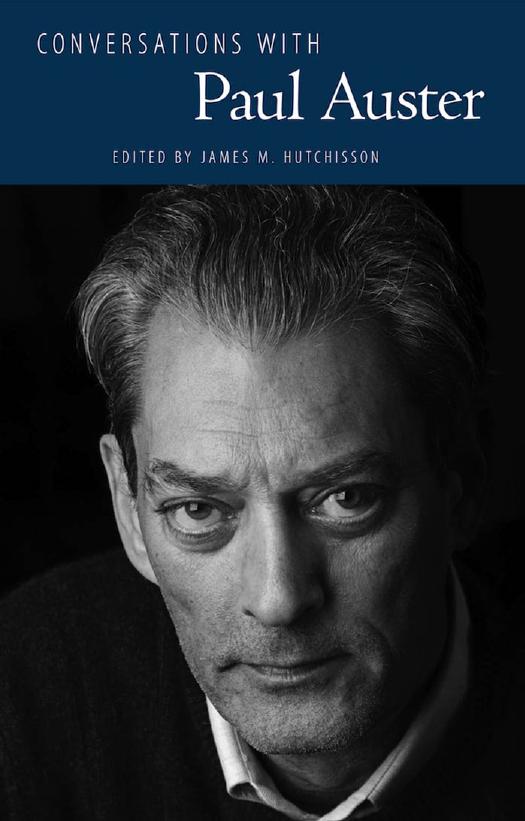Conversations with Paul Auster by James M. Hutchisson

Author:James M. Hutchisson
Language: eng
Format: epub, pdf
Publisher: University Press of Mississippi
Published: 2013-03-21T16:00:00+00:00
Paul Auster: Writer and Director
Rebecca Prime/1998
Interview conducted February 22, 1998. Reproduced from Lulu on the Bridge. A Film by Paul Auster (Henry Holt, 1998) by permission of Paul Auster.
Rebecca Prime: Three years ago, when you were working on the postproduction of Smoke and Blue in the Face, you did an interview with Annette Insdorf and the last question she asked you was, “Now that you’ve caught the bug, do you have any desire to direct again?” You answered her, “No, I can’t say that I do.” Obviously, you’ve had a change of heart. Any particular reason?
Paul Auster: I guess it’s dangerous to talk about the future, isn’t it? The idea for Lulu actually came to me around that time, while I was still working on those films. I saw the story as a movie. And because I was feeling burned out by movies just then—postproduction on Smoke and Blue in the Face dragged on for almost a year—I did everything I could to resist it. But the story kept coming back to me, kept demanding that I do something about it, and eventually I gave in to the impulse. And when I did, I made a fatal mistake.
RP: How so?
PA: I decided to write it as a novel. If the story was good, I said to myself, then it didn’t matter how I told it. Book, film, it didn’t matter. The heart of the story would burn through no matter what form it took. So I sat down and started writing—and six or seven months later, when I stood up and examined what I had done so far, I realized it was no good. It didn’t work. It was a dramatic story, not a narrative story, and it needed to be seen, not just read.
RP: Why?
PA: Because of the stone, to begin with. Because of the film inside the story. Because of the dreamlike structure of events. A whole host of reasons.
RP: And so you went back and started over again …
PA: Not right away. I thought the project was dead, and I turned my attention to other things. A year went by, maybe a year and a half, but the story never really left me. When I finally understood that it was something I needed to do, I took a deep breath and started again. But this time I stuck to my original conception and wrote it as a screenplay. So much for trying to force things. I learned a lot from that blunder.
RP: Still, even though you wrote it as a film, the story feels more like a novel than most films one sees. Like one of your novels, actually.
PA: Well, habits die hard, as Izzy says at one point. But the fact was that I felt all along that Lulu was a continuation of my work, that it’s of a piece with everything else I’ve done.
RP: Most films seem to set out to tell one thing, and they usually proceed in a linear fashion. With Lulu on the Bridge, the story works on several different levels at once.
Download
Conversations with Paul Auster by James M. Hutchisson.pdf
This site does not store any files on its server. We only index and link to content provided by other sites. Please contact the content providers to delete copyright contents if any and email us, we'll remove relevant links or contents immediately.
Cecilia; Or, Memoirs of an Heiress — Volume 2 by Fanny Burney(31931)
Cecilia; Or, Memoirs of an Heiress — Volume 3 by Fanny Burney(31920)
Fanny Burney by Claire Harman(26587)
We're Going to Need More Wine by Gabrielle Union(19023)
Plagued by Fire by Paul Hendrickson(17394)
All the Missing Girls by Megan Miranda(15901)
Cat's cradle by Kurt Vonnegut(15312)
Bombshells: Glamour Girls of a Lifetime by Sullivan Steve(14041)
For the Love of Europe by Rick Steves(13836)
Leonardo da Vinci by Walter Isaacson(13296)
4 3 2 1: A Novel by Paul Auster(12358)
The remains of the day by Kazuo Ishiguro(8956)
Adultolescence by Gabbie Hanna(8904)
Note to Self by Connor Franta(7659)
Diary of a Player by Brad Paisley(7540)
Giovanni's Room by James Baldwin(7307)
What Does This Button Do? by Bruce Dickinson(6188)
Ego Is the Enemy by Ryan Holiday(5398)
Born a Crime by Trevor Noah(5361)
